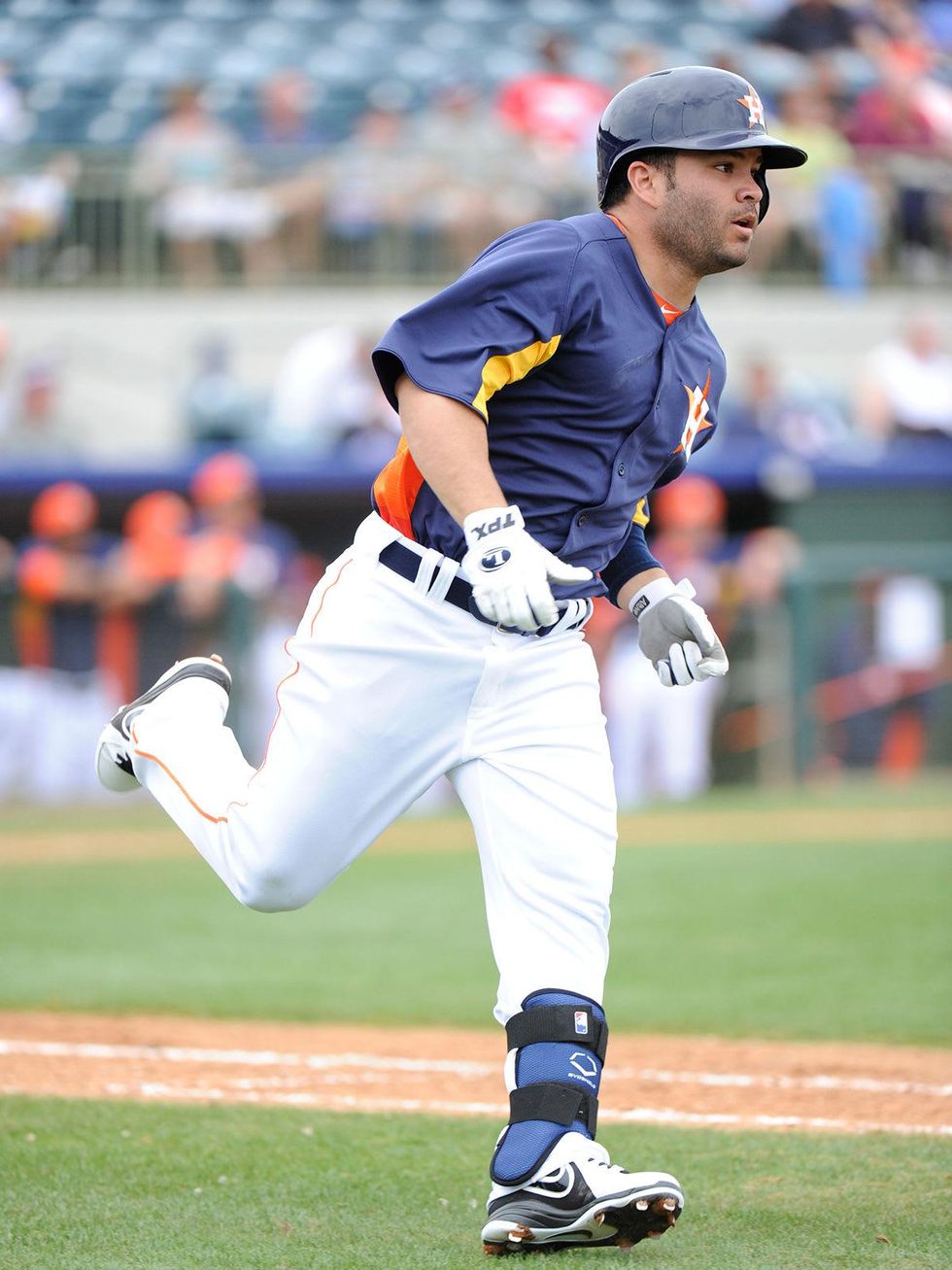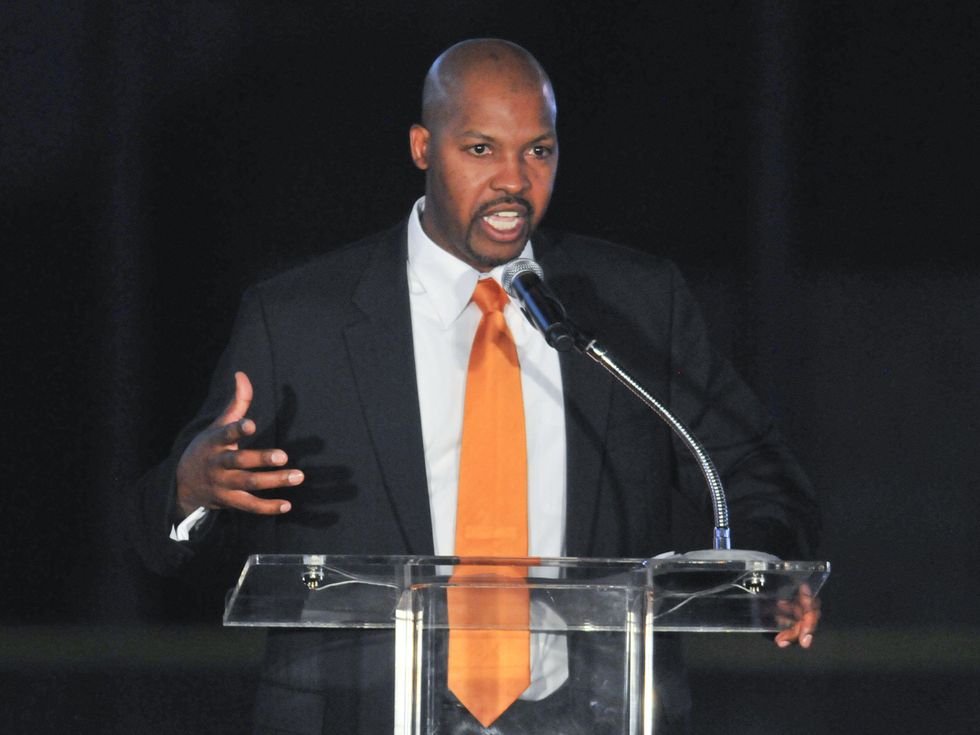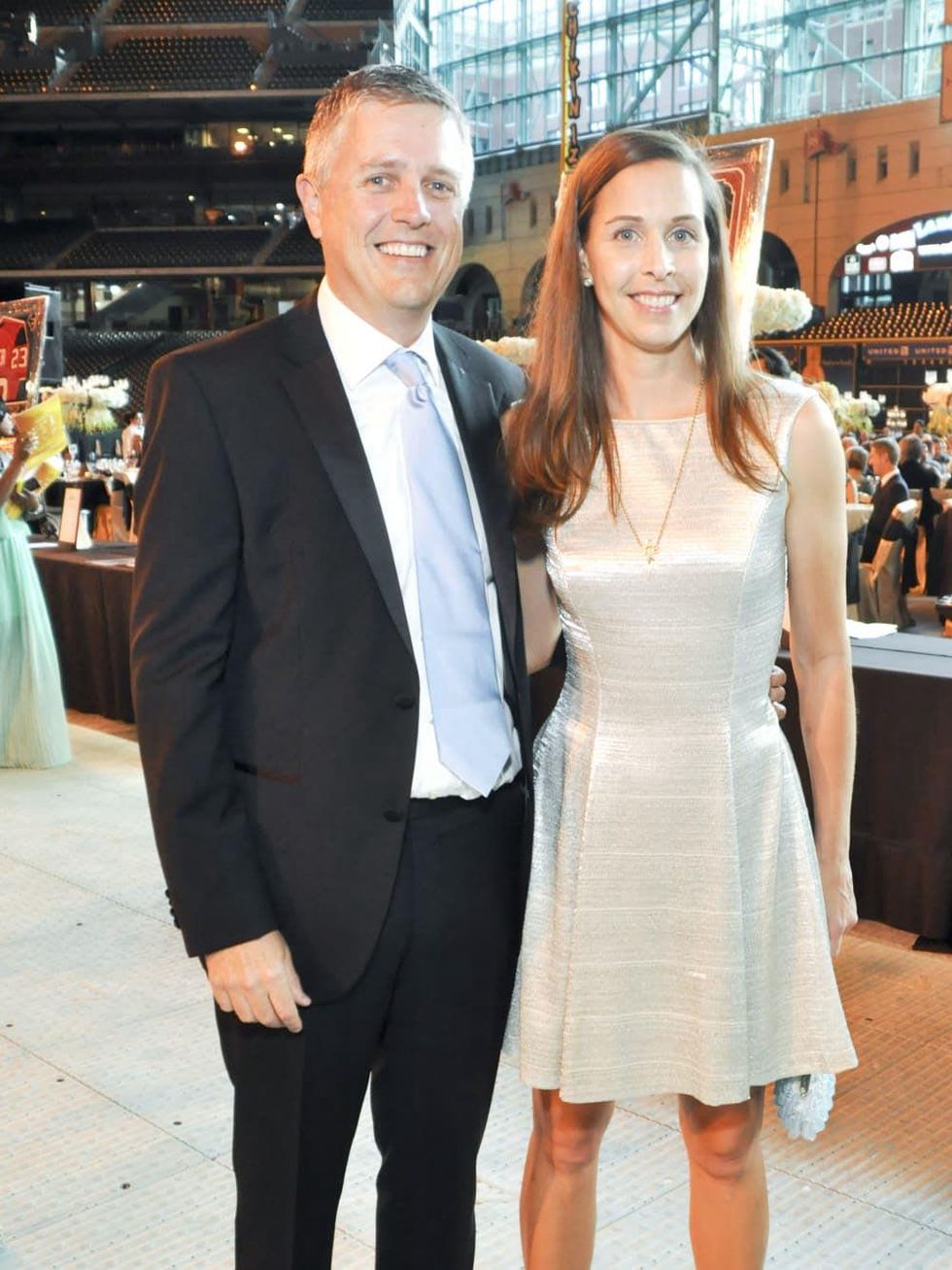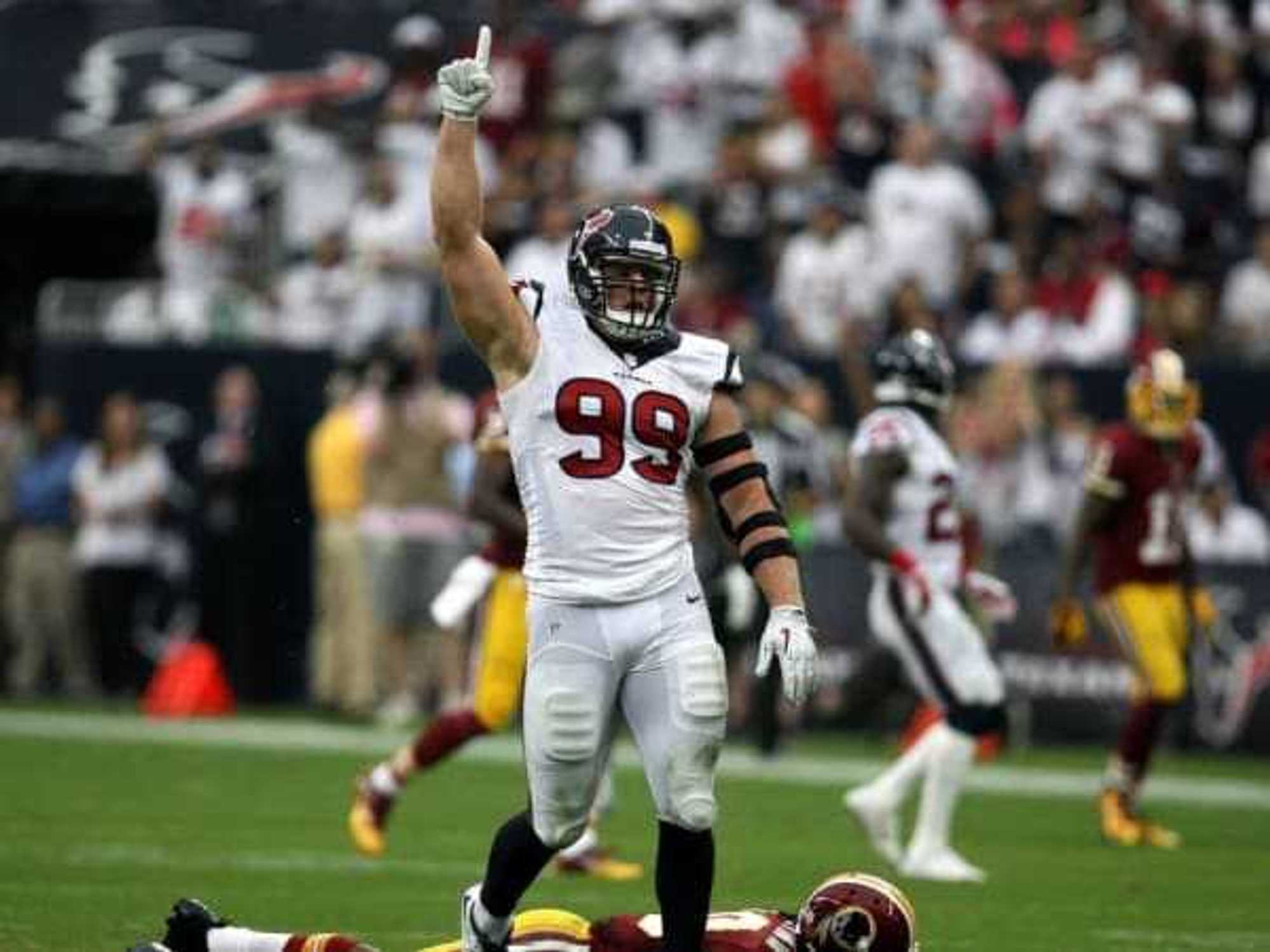Hardball
Nolan Ryan can't save the Houston Astros: That job's still on ever-optimist Jeff Luhnow and his major moves
With spring training underway and the good feelings from Nolan Ryan's return still in the air, Jeff Luhnow is offering his usual picture of verve and zeal, displaying an air of exuberance that belies the perceived miserable state of the Houston Astros. The power of Luhnow's positive personality is an undeniable asset, and it likely played a minor role is his being named Astros general manager on Dec. 7, 2011.
But to the cynic, it is easy to dismiss the enthusiasm Luhnow presented in advance of the team's departure for Kissimmee, Fla., and the commencement of spring training. The Astros were a combined 162 games under .500 over the last three seasons, having strung together three consecutive 100-loss campaigns while dismantling a flawed infrastructure and initiating a completely necessary rebuild.
The product they put on the field at the major league level in 2013 was a laughingstock, an unmitigated mess that would stain front offices stewarded by traditionally stoic types.
"I think the most demoralizing loss you can have in baseball is when you lose a game in the last two or three innings."
That Luhnow has purchased himself leeway and time is a byproduct of both his ability to articulate his vision for rebuilding and to do so with affability. And now, with his second full offseason as general manager complete, Luhnow appeared to approach the annual media luncheon podium with an extra bounce brought about by the incremental moves he made that marked the first step toward fielding a legitimate and competitive roster on the major league level.
"I am pleased — very pleased — at the progress we have made over the last two years," Luhnow said. "The aggregation of talent has gone from being among the worst in baseball to among the best, and that’s not easy to do. A lot of hard work went into it not only from the amateur scouting department having very good drafts but the player development department, our medical department keeping the players healthy, our front office in making trades that allow us to continue to add depth.
"There are a lot of components that go into that kind of turnaround, and we do expect that we’re going to be able to maintain that for the long haul and that ultimately that’s going to be our competitive advantage because having a robust talent base internally is going to allow us to do what we need to do at the big league level to maintain that competitiveness."
For the first time since Luhnow lugged his impeccable credentials from St. Louis to Minute Maid Park the Astros have shifted some focus from cultivating their vaunted farm system to constructing a respectable big league product. No one can disparage the Astros for celebrating their recognition as the top farm system in baseball by ESPN and the Sporting News, not after the arduous labor Luhnow and staff undertook in replenishing that barren system.
Conversely, fans can endure only so much tantalization. Waiting for George Springer and Jon Singleton to arrive and serve as the foundation for the future is a frustrating process, and asking fans to showcase the patience required to wait for prospects to mature and materialize can be a futile exercise. Luhnow always appeared mindful of that truth, but instead of paying lip service to that notion, he orchestrated a series of transactions that should whet fan appetites.
In outfielder Dexter Fowler, the Astros acquired from the Colorado Rockies a solid offensive player with the speed to master the unorthodox dimensions of center field at Minute Maid Park. Additionally, Fowler profiles as a capable leadoff hitter, a component the Astros lacked as first-year manager Bo Porter struggled mightily to construct a daily lineup that would maximize the available talent. Entering his age-28 season, Fowler is in the early stages of his physical prime and offers the promise of fulfilling the untapped potential that led the Rockies to willfully consider and complete such a lopsided trade.
Jesus Guzman gives the Astros a viable candidate to fill the void at first base created when incumbent Brett Wallace was designated for assignment. Guzman has compiled fewer than 1,000 career plate appearances entering his age-28 season, and his career slash line of .259/.324/.418 does little to portend excellence. But he was a two-win player for the San Diego Padres in just 76 games in 2011, and his versatility as an option in the outfield intrigues.
Guzman might serve as a placeholder for Singleton, but he possesses the bat to offer the Astros enough at first base until the situation is ultimately rectified.
Shortstop Cesar Izturis brings fantastic defensive skills to a position where youngsters (read: Jonathan Villar) sorely need mentoring. Ronny Cedeno was designated for the same veteran role last season, but he doesn't hold a candle to Izturis' defensive profile. Even in a limited bench role, Izturis is an asset.
Add Fowler, Guzman and Izturis to a mix of returning players anticipating continued development (Jose Altuve, Jason Castro, Chris Carter, Matt Dominguez) along with farmhands expected to make their debuts this season (Singleton, Springer), and perhaps the Astros field a league-average offense. That would be sufficient considering the promise of their pitching staff, one significantly bolstered by the numerous moves made to reconstruct the bullpen.
What A Relief
The Astros were inept across the board last season: Offensively, defensively and on the mound. However, their shortcomings in the bullpen were so pronounced that they required a level of addressing so thorough and dedicated that Luhnow deemed those micro needs priorities throughout the offseason.
"We have to figure out a way to become more consistently competitive at the big league level, and that was one of our goals going into this offseason," he said. "One of the ways that we looked at that was where did we fall short last year and where can we improve, and right away the focus was on pitching."
Waiting for George Springer and Jon Singleton to arrive and serve as the foundation for the future is a frustrating process.
The rotation is poised for growth and advancement and thus isn't viewed to be in dire straits. The additions of right-handers Scott Feldman and Jerome Williams (who would be better served as a reliever) were sufficient. The bullpen, however, was historically awful last season, making the acquisitions of Matt Albers, Anthony Bass, Jesse Crain and Chad Qualls noteworthy in that each provides the stability and reliability the Astros woefully lacked in relief.
"I think the most demoralizing loss you can have in baseball is when you lose a game in the last two or three innings," Porter said. "Obviously we witnessed that quite a bit last year."
While that quartet stands to anchor the bullpen, opportunity remains for those youngsters who endured a trial by fire last season. The door remains open for Kevin Chapman and Jose Cisnero and Paul Clemens and others, both to produce and to learn from watching the veterans work. Before he was jettisoned two summers ago, Brett Myers spoke often on the importance of veteran relievers showing less experienced pitchers the ropes. That scenario is in play.
"Again, the young players that were forged into that position last year, even through the experience may not have been satisfactory as far as the numbers go, I think that experience alone will help those guys be much more valuable pieces to our overall bullpen even with the addition of Jesse Crain, Chad Qualls and Matt Albers," Porter said.
Watching the Astros attempt to strike that delicate balance might be the storyline of the 2014 season. The roster construct is a confluence of veterans with talent in reserve, young players who suffered through hardships during their first tour in the show, and prospects eagerly banging on the door of promotion.
If the Astros can find the right blend of Feldman, Crain and Qualls, of Jarred Cosart, Brett Oberholtzer and Brad Peacock, of Jake Buchanan, Mike Foltynewicz and Asher Wojciechowski, their suffering over the last three seasons would not have been in vain. This season presents a unique window for the organization, one still intent upon building smartly through the amateur draft — the Astros own three selections among the top 41 picks this summer — while also acknowledging that foisting a motley collection of overmatched players no longer represents an acceptable option in a major league market.
The Astros won't threaten in the American League West, not with the Texans Rangers committing $38 million to first baseman Prince Fielder and left fielder Shin-Soo Choo this season; the Seattle Mariners claiming first prize in the $240 million Robinson Cano Sweepstakes; the Los Angeles Angels injecting youth and left-handedness into their rotation (Hector Santiago and Tyler Skaggs) and the Oakland Athletics still employing a wizard in Billy Beane.
However, the Astros do offer hope that won't require routine perusals of box scores from Oklahoma City and Corpus Christi. And that represents progress.
"We wanted to improve our team at the big league level without subtracting from our strategy, and our strategy is pretty clear," Luhnow said. "We’re building from within, and we’re going to develop the best young talent in baseball where we can consistently compete."



